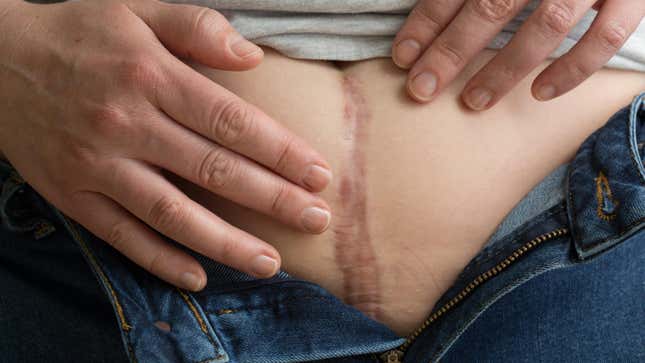Utah Is Searching for Forced Sterilization Survivors in the State to… ‘Apologize’
One victim was sterilized for allegedly cheating on her husband; another, a Black incarcerated man, for being an “accused homosexual.” There were more than 800.
JusticePolitics

On Wednesday, a study in The Lancet Regional Health – Americas by researchers from the University of Utah estimated that 830 people were sterilized against their will by the state of Utah between 1925 and 1974. Victims were targeted if they were deemed “sexual deviants” or “habitually sexually criminal, insane, idiotic, imbecile, feebleminded, or epileptic.” One woman was sterilized for allegedly cheating on her husband on multiple occasions; another, a Black incarcerated man, for being an “accused homosexual.” Other victims included a rape victim and a woman who experienced a stillbirth; many were teenagers, and at least one was under the age of 10. The paper counts 54 people forcibly sterilized by the state who may still be alive today.
Despite these findings, the state government seems unwilling to materially compensate survivors. The Salt Lake Tribune notes that no Utah governor has ever publicly acknowledged this aspect of the state’s history. A spokesperson for current Utah Gov. Spencer Cox (R) didn’t respond to the Tribune’s request for comment. Cox’s office responded to a request for comment by directing Jezebel to the state’s Department of Health and Human Services. In a statement issued to Jezebel and the Tribune, the department said it’s “in the process of trying to identify any individuals still living who underwent these procedures.”
“We plan to issue personal apologies to any individuals we are able to identify. While an apology cannot right the wrongs that were committed, we recognize the importance of acknowledging and understanding this history so we can learn from it and do better both now and in the future,” the statement continued. The department also claimed that it’s implemented new measures to “focus on making sure a [disabled] person can live their life as independently as possible—including having the option to marry or have a family if that is what a person wants.”
There’s a glaring problem with Utah’s tepid apology to victims: It frames nonconsensual sterilization as a relic of the past. But per the Tribune, since 2017, Utah judges have heard 11 forced sterilization cases, and in 10 of these cases allowed the sterilizations to move forward.
-

-

-

-

-

-

-

-

-

-

-

-

-

-

-

-

-

-

-

-

-

-

-

-

-

-

-

-

-

-

-

-

-

-

-

-

-

-

-

-








































